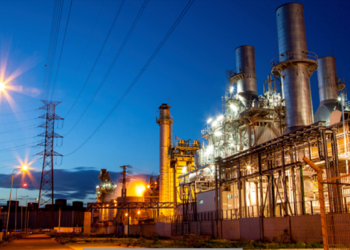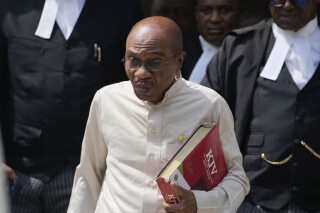Data from the Nigeria Electricity System Operator (NESO) has shown that Nigeria’s electricity supply has been on an upward trend since the start of the 2023 general election season.
According to the NESO data, both the generation companies (Gencos) and Power Holding Companies have provided relatively stable power supply before, during the general elections, and after the February 25 exercise.
Power data for February 23 to February 27: On February 23, power generation peaked at 4, 801.10 megawatts, and energy sent out on that day was 109,726.07 megawatts per hour.
On February 24, power generation peaked at 4,790.20 megawatts, energy sent out on that day was 108,991.75 megawatts per hour.
On election day, February 25, power generation peaked at 4,825.90 megawatts, energy sent out that day was 106,373.85 megawatts per hour.
On February 26, power generation peaked at 4,931.90 megawatts, and energy sent out was 100,512.87 megawatts per hour. Meanwhile, power generation peaked at 4,858 megawatts on February 27 with the highest frequency at 51.32 Hertz and the lowest frequency at 49.34 Hertz.
According to NESO, the energy trend showed that energy sent out was at almost the same rate as energy generated for the highlighted days. The hourly power generation trend monitored by Nairametrics showed that on Sunday when Nigerians were expecting the beginning of the announcement of presidential and national assembly election results, Egbin Power plant, and Afam VI power plant sent out the highest power on that day.
Although there has been an improvement in Nigeria’s electricity supply during the 2023 general elections season, it is important to note that the country still faces significant challenges in the power sector.
Uche Onuoha, an Abuja resident told Nairametrics that his estate has been noticing increased power supply from the Abuja Electricity Distribution Company (AEDC), especially during the election season. However, he thinks the reason is more pecuniary-related than merely wanting Nigerians to keep up with the 2023 general election updates.
- “I know they recently increased their electricity tariffs, and more people are getting prepaid meters. I believe the stable power supply is just a way to make more money from prepaid customers. Provide more power, the units finish on time and customers make more purchases, so they can increase their revenue base,” he stated.
What you should know: The Nigerian government has made efforts to improve the country’s electricity supply in recent years, but progress has been slow. Some of the challenges facing the power sector include inadequate funding, outdated infrastructure, and poor maintenance of power facilities.
On Wednesday, February 15, Nigeria’s Minister of Power, Engr. Abubakar Aliyu announced that the Federal Executive Council (FEC) had approved $53.1 million and N2.1 billion for the procurement and installation of electrical conductors to boost the power supply in the country.
- This will address the constant tripping of circuit breakers due to the overloading of electricity lines.





















